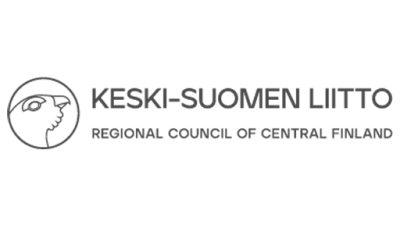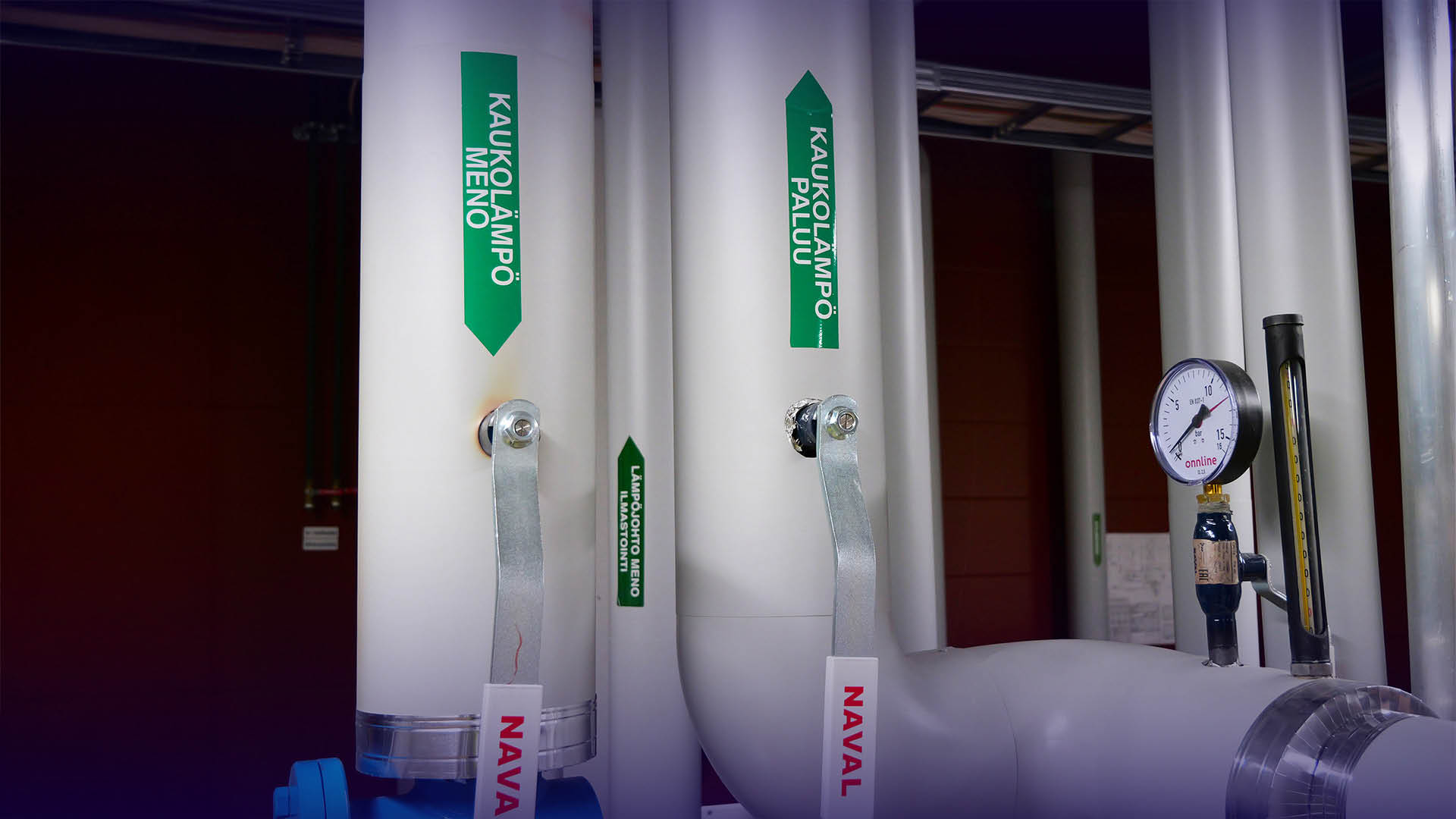UKKO – New Hybrid District Heating Concepts
The hybrid district heating platform, located at the Bioeconomy Campus in Saarijärvi, Finland, offers an exceptional environment to realise various setups of district heating components to a concrete comprehensive district heating system. Unlock the future of district heating with us!



In this project, a district heating research platform will be built on the Bioeconomy Campus, integrated with its existing district heating system. The platform will enable research into more diverse district heating production in a real environment. Located in the city of Saarijärvi in Central Finland, the Bioeconomy Campus offers exceptionally favorable conditions for studying, testing, and training in new district heating concepts and technologies.
The campus is jointly operated by two educational institutions: Jamk University of Applied Sciences, and Vocational College POKE.
The UKKO project is co-funded by the European Union. The funding authority is the Regional Council of Central Finland.
Businesses, researchers, universities, and colleges can use the platform for the creation of various concrete district heating solutions for testing and demonstration purposes, in order to obtain realistic data about the functions of the concepts. The platform can also be used for the training of personnel and experts, as well as a demonstrative element in events.
The hybrid district heating system and its new automation provide opportunities to develop smarter control applications for district heating production. In the future, this will also enable the optimization and control of production according to electricity prices.
The hybrid district heating testing platform can be utilized in many ways:
- Combined heat production using various technologies during peak load situations. Optimization of heat production based on real-time electricity prices.
- Charging of heat accumulators using electric production technologies during low electricity price periods, and discharging them into the network during high-price periods.
- Operation of the network at various temperature levels, including scenarios with insufficient cooling.
- Simulation of malfunctions in heat production and delivery.
- Analysis of the impact of energy source placement along the network.
- Predictive network charging, anticipating weather conditions and consumer behavior.
- Sensitivity analysis based on temperature, electricity prices, and other variables; algorithm verification.
- Testing of various technologies connected to the network.
- Training sessions, customer events, and technology demonstrations.
Facilities and Infrastructure
- Boiler testing lab
- Biomass-fueled district heating plant (1 MWth)
- Area-wide district heating network with 20 connected buildings (annual consumption: 3,000 MWh)
- Bidirectional heat connection, solar energy system, weather station, and more
- Energy contracts with two clients, enabling versatile R&D, testing arrangements, and implementation
- Energy technology and building automation experts
- Education: Degree programs in energy and environmental engineering, Training program for energy equipment installers
Further Developments
The UKKO project also opens possibilities for further development of the area, including the use of AI (specifically machine learning) in decision-making and in controlling the hybrid district heating system.
Planned additions include:
- Electric boiler (150 kW)
- Heat pump (50 kW, air-to-water and water-to-water)
- Heat accumulator (70 m³)
- Heat sink for waste heat sources
- Partial network temperature regulation
- Comprehensive metering system
- Automation, control, and data management system
District heating is the primary method of heating residential and service sector buildings in the Nordic countries. In Finland, nearly half of these buildings are served by district heating. Almost every city and town center has a district heating system, with about 90 percent of properties connected to these networks. The main heat source is biomass. Across Europe, there are approximately 3,500 district heating networks in operation.
To improve efficiency, reduce emissions, and enhance competitiveness, district heating companies are actively seeking new solutions for utilizing diverse energy sources and waste heat, as well as optimizing operations. The growing importance of demand response from consumers and clients is also becoming a key element in modern district heating systems.
Common solutions include integrating electric boilers, heat pumps, solar energy systems, and both short- and long-term heat storage into the district heating infrastructure. Additionally, connections to waste heat sources are being explored. The operation of each component is optimized based on real-time and forecasted conditions, such as electricity market prices, weather, and consumer behavior. System control relies on real-time network data and intelligent automation systems that learn and adapt.
The design of these systems, sizing of components, development and testing of concepts and technologies, and training of personnel all present challenges for the district heating industry. These challenges, in turn, create demand for new services and platforms to support the sector’s ongoing evolution.
Project Implementers
The project is being implemented as a joint effort between Jamk University of Applied Sciences and the Northern Central Finland Vocational College POKE, in close collaboration with partner companies ALVA-yhtiöt Oy, Elomatic Oy, Saarijärven Kaukolämpö Oy, and Finnish Energy. VTT Technical Research Centre of Finland and Aalto University are also involved in the collaboration. Efforts are being made to expand cooperation to include other companies and organizations as well.
The overall project consists of three sub-projects that support the achievement of a common goal. For the project team’s activities, there is a group project comprising two development projects, implemented by Jamk and POKE. For investments, there is a separate investment project, which is managed by Jamk.
The project will be carried out from 1 February 2024 to 31 January 2027.
